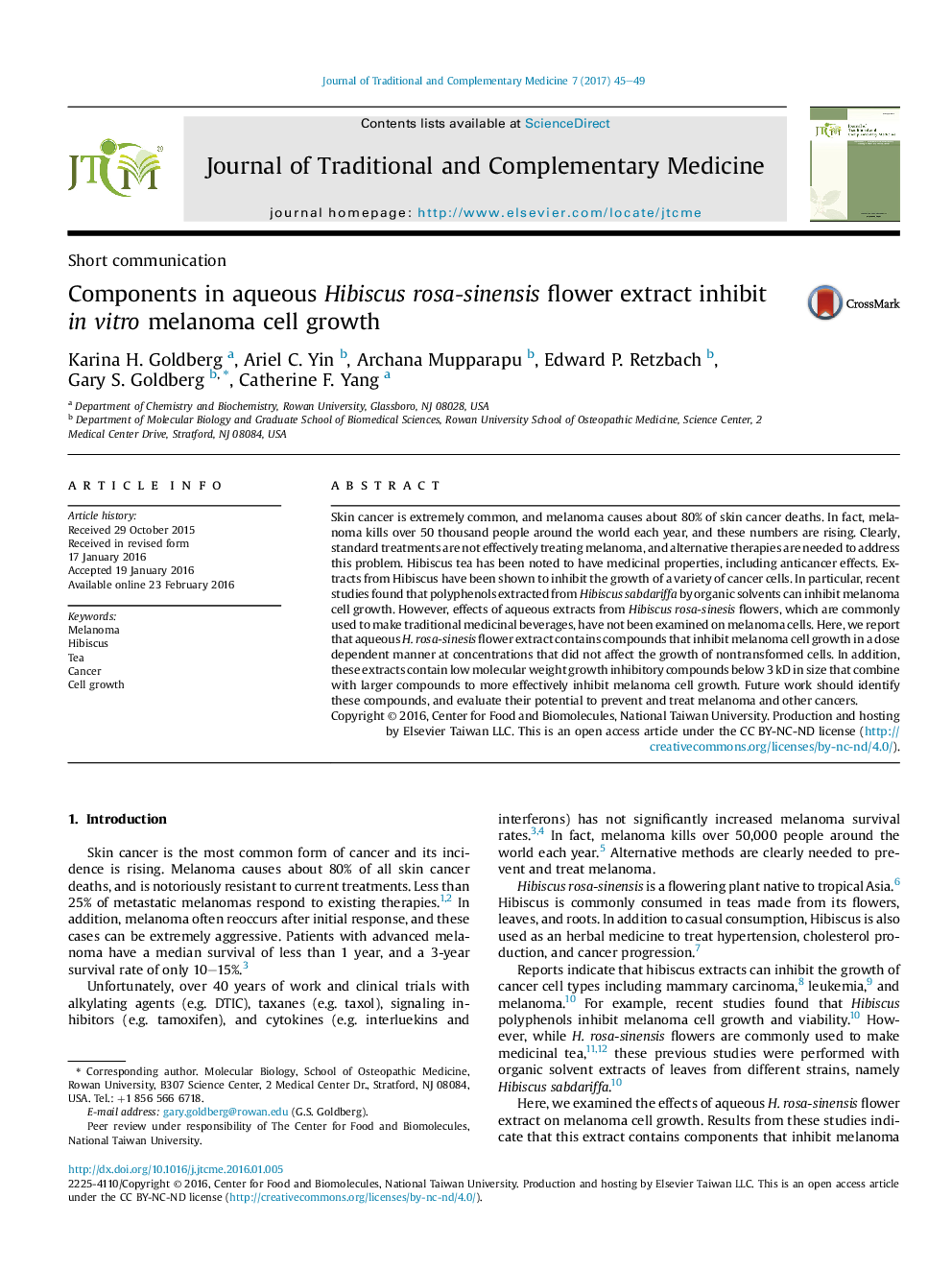| Article ID | Journal | Published Year | Pages | File Type |
|---|---|---|---|---|
| 5635431 | Journal of Traditional and Complementary Medicine | 2017 | 5 Pages |
Skin cancer is extremely common, and melanoma causes about 80% of skin cancer deaths. In fact, melanoma kills over 50 thousand people around the world each year, and these numbers are rising. Clearly, standard treatments are not effectively treating melanoma, and alternative therapies are needed to address this problem. Hibiscus tea has been noted to have medicinal properties, including anticancer effects. Extracts from Hibiscus have been shown to inhibit the growth of a variety of cancer cells. In particular, recent studies found that polyphenols extracted from Hibiscus sabdariffa by organic solvents can inhibit melanoma cell growth. However, effects of aqueous extracts from Hibiscus rosa-sinesis flowers, which are commonly used to make traditional medicinal beverages, have not been examined on melanoma cells. Here, we report that aqueous H. rosa-sinesis flower extract contains compounds that inhibit melanoma cell growth in a dose dependent manner at concentrations that did not affect the growth of nontransformed cells. In addition, these extracts contain low molecular weight growth inhibitory compounds below 3Â kD in size that combine with larger compounds to more effectively inhibit melanoma cell growth. Future work should identify these compounds, and evaluate their potential to prevent and treat melanoma and other cancers.
Graphical abstractDownload high-res image (91KB)Download full-size image
